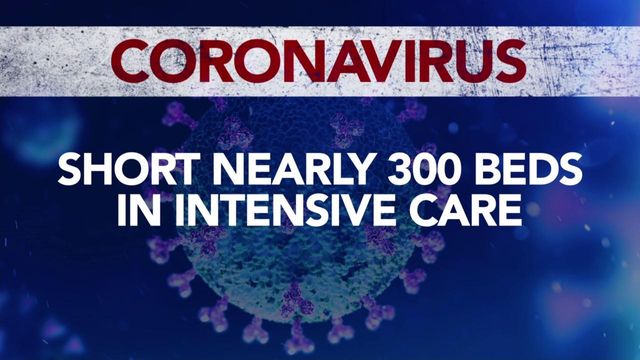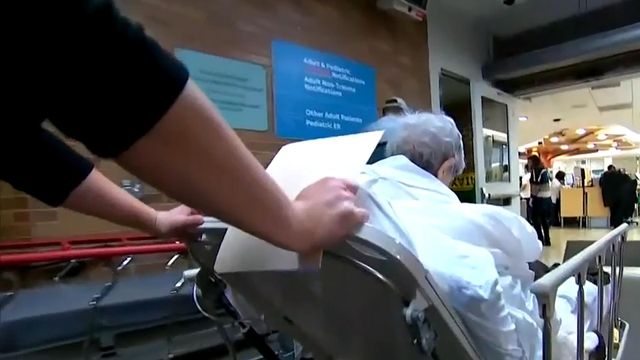Coronavirus exposes rural health care weaknesses
"Hospital beds and ICU beds will be in short supply, and we're going to need every one we can find," says Dr. Mark Holmes of UNC Chapel Hill's Gillings School of Public Health.
Posted — Updated"Hospital beds and ICU beds will be in short supply, and we're going to need every one we can find," says Dr. Mark Holmes of UNC Chapel Hill's Gillings School of Public Health.
Holmes, who specializes in the rural health care system, says the pandemic is peeling off the bandage that many have raised concerns about for years. "What this epidemic really exposed is the fragility of the rural health care infrastructure," he said.
According to data from Kaiser Health News, 35 of North Carolina's 100 counties have no ICU beds. In fact, 18 counties don't even have a single hospital. The counties lacking that medical infrastructure have a combined 250,000 residents aged 60 and older, identified as a high-risk group for serious cases of coronavirus.
While care is an issue for those counties, so is the survival of rural hospitals. With many cutting back on non-essential procedures to prepare for COVID-19, they're taking a huge financial hit many simply can't afford.
"We have community hospitals that may only have 30 days of cash, and when you shrink and harden your operation to be ready for patients when they're in need, they end up being quickly in a cash crunch," says Steve Lawler of the North Carolina Healthcare Association.
Holmes agrees and says rural and urban health care systems will likely need to coordinate care with whoever comes in the door.
"Some may travel three hours to go to the hospital they think is best. We really don't have a model on how people are going to behave, which is why it's so important that we flatten the curve as much as we can," he said.
On a global scale, the United States is well ahead of many other nations when it comes to the availability of intensive care unit beds, with 35 per 100,000 people. That's almost triple the supply in Italy, five times more than the United Kingdom and 10 times more than China.
Related Topics
• Credits
Copyright 2024 by Capitol Broadcasting Company. All rights reserved. This material may not be published, broadcast, rewritten or redistributed.






